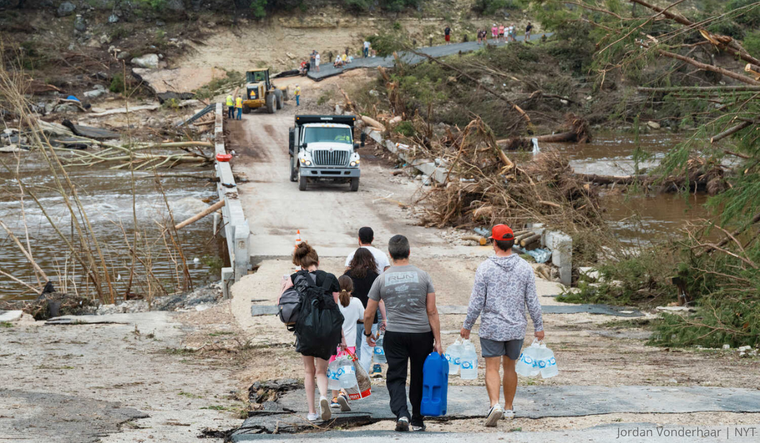In His New Book, Former Representative Adam Kinzinger Talks Defending Democracy, Standing Up to the GOP, and How Each of Us Can Be Renegades
Do you remember where you were on January 6th, 2021?
Adam Kinzinger does.
As a representative for Illinois’ Sixteenth Congressional District, he was inside the U.S. Capitol when a violent mob stormed the building in an attempt to overturn the presidential election. When the situation turned dangerous, he holed up in his office, pistol at the ready.
In the hours after that shocking attack on democracy, Kinzinger was quick to say then-President Trump should be removed from office immediately. Then, he became one of just two members of the GOP to sit on the committee investigating the January 6th attack after ten others he’d recruited to stand against the pro-Trump movement lost their nerve and abandoned him.
Being a renegade came at a cost. He received death threats. Family members told him he was a disappointment to God. A fellow veteran and co-pilot in the war in Iraqi told Kinzinger he was ashamed to have flown with him.
And yet, Kinzinger stood his ground and stood up for what he believed. In his new book, Renegade: Defending Democracy and Liberty in Our Divided Country, Kinzinger gives us an inside look at some of the most critical moments in politics in the last few years and offers a compelling call for our leaders—and all of us—to come together. This week, he sat down with The Sunday Paper to tell us more about what’s in his book, why he had to write it, and so much more.
A CONVERSATION WITH ADAM KINZINGER
There has recently been significant upheaval in the U.S. House of Representatives, where you once served. What do you make of what’s happening?
Well, we’ve always had dysfunction—but this is something new.
I think one of the things that has driven this moment is fundraising. I used to brag about reaching across the aisle to work with Democrats, and I could raise money based on that. Now if you’re Republican, you raise money when you brag about fighting Democrats. That’s a problem.
Another thing that’s currency now is fame. You don’t become famous—at least not quickly—by legislating and passing bills. You become famous by wearing Scarlet letters to the floor of the House, screaming out loud or saying outrageous things.
Unfortunately, I think this job has started to attract people who see it as a quick way to fame and popularity, and they’re not serious legislators.
You write that you feel some responsibility for January 6, because you were a participant in “the GOP’s gradual decent into a dysfunctional and destructive force in our politics.” When did this realization happen for you?
I don’t load myself with guilt about it because I know that other people wouldn’t do what I’ve done—particularly since January 6th. Politicians often use light arts or dark arts, and both of those are ways to influence people. Take implementing fear as a way to fundraise. We learned that riding the fear tiger raised a ton of money and got our side really angry, and we just went with it.
I think I was different from a lot of others in terms of using fear. But I’ll admit there were points when I saw us going down a dark path, and instead of speaking out about it I stayed quiet. I can look back and see the track of where our party went and know that there were times I didn’t speak out.
I was pretty outspoken before January 6th and even before the election. The night of the election when Donald Trump said “Stop the votes,” I thought, Okay, this is extremely serious now. All the stuff that he did prior was bad. But when you try to convince half the country that the election was rigged and unfair? Democracy can’t survive that.
In our era of incredibly divisive politics, it must’ve been terrifying on some level to defy the party you’d once embraced. How did you find the courage to do it?
I don’t think I found any courage; I just did what was right.
When I went into politics, I’d just gotten out of Iraq. I remember thinking, If we’re going to ask people to die for this country, I have to be willing to give up my job for this country. That’s such a small sacrifice in comparison to what others have given up. So for me, as we started to cross red lines, I would speak out. I would put out a Tweet and say what the president did was wrong. But there was a point at which becoming a renegade wasn’t a conscious choice. I just refused to become a drone. I refused to do destruction to the Constitution and to democracy.
The thing is, I was surrounded by a bunch of people who couldn’t take that approach. So I looked like a renegade—but really, everybody else was just going off the rails and I refused to go off the rails with them.
You took some serious heat for defying the Republican party. Can you speak to that? Did it ever make you question whether it was worth it?
I’m pretty comfortable now that I did the right thing and that it was worth it. But for a long time, I would wake up and think, Okay, everybody else in the GOP is going along with this…am I getting something wrong? I would constantly question myself.
One time I went home to my folks’ house on the same day as a certified letter from my dad’s cousins arrived. They wrote to say they’d disowned me because I was part of the devil’s army. A co-pilot in Iraq that I fought with sent me a text telling me he’s ashamed to have ever flown with me.
There was a real cost, and I can see how the temptation would have been to just say, Fine, I’ll go along with this because I don’t want to get kicked out of my tribe. We fear being kicked out of our tribe more than we fear death. But I just couldn’t cross that line. I couldn’t do it.
You say egocentrism drives every major office candidate…
I think anybody who’s in politics and tells you they don’t have an ego is a liar. To run for office, you’re ultimately saying, Okay, there are 700,000 people in my district and I’m going to be the one. If you don’t have ego, that’s not something that ever even crosses your mind.
It’s important to believe in yourself and to have confidence. The problem is when the ego overtakes the mission—and for many people, it does. For many people, the ego becomes the identity—and once this is your identity, you’ll compromise anything.
Your new book’s title is powerful: Renegade: Defending Democracy and Liberty in Our Divided Country. What is one thing each of us can do to defend democracy right now?
Well, the first thing is you have to understand that you don’t have a right to roll your eyes and give up. Think about what previous generations have done for this country—young men and women literally dying to get this country where it is today. We don’t have a right to give up—to be the ones who let this democracy die. Frankly, the things we must do to get through this time are minimal in comparison to what others have done.
It’s also important to realize that it took us a very long time of being asleep at the wheel for this democracy to get where it is, and it’s going to take some time to get out of this moment. It’s not going to happen in a day or a year. It’s going to happen as people begin to get fed up, and then vote with that frustration and demand better.
We will come out of this. In fact, if we don’t come out of this, it will be the only time in American history that we haven’t. The odds are with us, but there’s no man or woman that is going to come in on a white horse and save the day. It can only be us.
If you could speak directly to someone who wants to be a renegade and stand up for what she or he truly believes in—but is afraid to take the leap—what would you say?
The proudest moments I had in Congress were times that I took a vote where I was one of only one or two or three Republicans. Why? Because I was proving to myself that I was willing to stand alone to do the right thing. That’s a scary moment.
In everyday life, your survival instinct is going to be screaming at you to do everything you can to get in the bushes and hide. Yet in those moments when you make the decision to stand up, stand out, defend that person that’s defenseless, do the right thing—those are the moments you will be bragging about to your kids and grandkids.
What’s next for you?
I honestly have no clue. Look, there’s part of me that would love to get back into politics. I don’t think I’d ever run for a position in the House again. So, it’d have to be higher than that—Senate, Governor, President. And if there’s a way to help people outside of politics, I’ll continue to do that.
I know my passion for this country hasn’t gone away. What form does that take? I don’t know. But I’m not sitting here plotting my next course because I’ve learned that particularly in politics, you can lay out a 10-year plan and 100 times out of 99—not 99 out of 100—it will never go what you want it to.

Adam D. Kinzinger served in the United States House of Representatives from 2011 to 2023, representing Illinois’ Sixteenth Congressional District. Prior to being elected to Congress, Kinzinger served in the Air Force in both Operation Iraqi Freedom and Operation Enduring Freedom. He is a Lieutenant Colonel in the Air National Guard and a Senior Political Commentator on CNN.
Please note that we may receive affiliate commissions from the sales of linked products.



